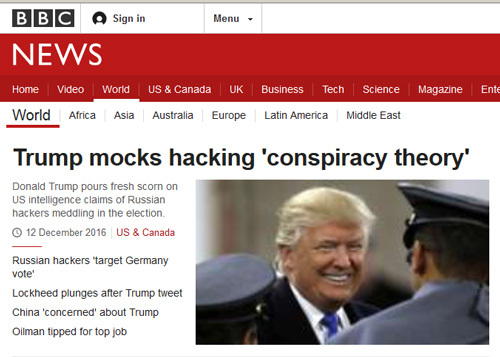Truth can be elusive and facts imprecise, but an earnest pursuit of both is fundamental for the establishment and maintenance of civil society. The assault on enlightenment during the election cycle and since has been a wanton act of nihilism by the latest wave of neo-Nazis and the President-Elect himself.
Just one tool in their kit is to preemptively accuse others of things they are guilty of–an especially easy task for damaged souls given to repressing and projecting–which allows for a wall of confusion to be erected. Once nothing seems sure, anything becomes possible.
One example would be a hatemonger pointing out a mistake in the New York Times, in an attempt to create a false equivalency with Breitbart or some of other white-nationalist propaganda. Except, of course, while the Times or any reasonable publication can be mistaken, the act of being wrong isn’t their mission. It’s an exception, not the rule.
Beyond voting and calling and emailing and marching, something American citizens can do if they fear liberal democracy is now in jeopardy would be to hold every political and public figure accountable if they fail to support noble attempts at truth, if they feed the fog, whether it’s Wall Street Journal editor Gerard Baker refusing to call out Trump on his plethora of lies or the POETUS trying to obfuscate in regards to Russia’s interference in our free elections.
· · ·
An excerpt of Wallace Shawn’s centerpiece speech from 1981’s My Dinner With Andre that presently seems particularly pertinent:
WALLY:
Even if I were to accept the idea that there’s just no way for anybody to have personal happiness now, well, you know, I still couldn’t accept the idea that the way to make life wonderful would be to just totally, you know, reject western civilization and fall back into some kind of belief in some kind of weird something. I mean…I mean, I don’t even know how to begin talking about this, but, do you know…? In the Middle Ages, before the arrival of scientific thinking as we know it today, well, people could believe anything. Anything could be true: the statue of the Virgin Mary could speak, or bleed, or whatever it was. But the wonderful thing that happened was that then in the development of science in the western world, well, certain things did come slowly to be known, and understood. I mean, you know, obviously all ideas in science are constantly being revised; I mean, that’s the whole point. But we do at least know that the universe has some shape, and order, and that, you know, trees do not turn into people, or goddesses. And they’re very good reasons why they don’t, and you can’t just believe absolutely anything!•

